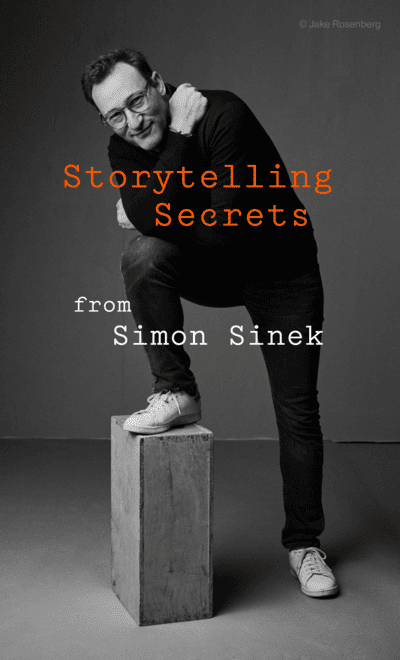Imagine a Red Bull-sponsored rock climber who suffers from a debilitating fear of heights or a clean-up hitter in baseball who lies awake at night, quaking in fear at the thought of high-speed objects. Or consider a CEO of a global tech company who experiences such incredible stage fright that they can’t even put their second foot on the ground on the day of their quarterly presentation. Some things, as they say, come with the territory.
Such was the plight of Matthew Barzun, a successful businessman and author, who was appointed as the United States Ambassador to Sweden in 2009 and then to the United Kingdom in 2013. He served abroad for several years while carrying a unique quality for a diplomat whose job requires holding court, entertaining foreign dignitaries, and rubbing shoulders with heads of state over champagne and hors d’oeuvres: he’s a big introvert.
Raised in a small town in New England, Barzun later moved to Louisville, Kentucky, where his introverted nature first became noticeable. “Kentucky is not an introverted culture,” he says. “The cultural body language of Louisville, as a river city, is open. The posture is open. The people are open. And the truth is, I found this very disconcerting—particularly at parties. I would think, ‘Oh dear, I’m going to be pinned into a corner and have to speak to people.'”
Over the years, Barzun did what many smart, self-aware individuals living with a perceived weakness do: he developed his own proprietary toolkit for dealing with it. He created visualizations to help him de-stress before social events, compiled a list of conversation starters to break the ice when necessary, and ultimately found a way to thrive as an introvert in a world dominated by extroverts.
Recently, Barzun sat down for a conversation with our founder and Chief Optimist, Simon Sinek, to share some of his secrets that any introvert can learn from. We’ve provided them below in the hopes that you find them helpful. And if you’re looking to further enhance your own toolkit for having better conversations—whether it’s making small talk at work or mastering difficult conversations as a leader—you’ll find a wealth of advice in our Optimism Library.
Tip One: Create a Visualization to Give You Momentum
Long before Barzun began his diplomatic career, he was a ski racer in his youth. Even today, he draws upon that experience to navigate social situations.
“I decided to apply a lesson from my time as a downhill ski racer in New England,” he explains. “When you’re nervous at the start, your instinct is to lean backward, which is actually one of the dumbest things you can do because it leads to loss of control and increases the likelihood of crashing. So, the counterintuitive approach is to lean down the mountain to slow down, even though it’s momentarily terrifying.”
However, once you embrace this technique, you gain more control than if you resisted it. “So, when I went to cocktail parties, I would visualize downhill skiing,” he says. “I would consciously lean forward, almost unnaturally, and remind myself to ask interesting questions. This momentum would carry me through the rest of the event.”
Tip Two: Come Prepared with Conversation Starters
It’s always helpful to have thoughtful icebreakers ready. Barzun has relied on several of them.
“One of the best questions is, ‘What do you not worry about?'” he suggests. “I’ve posed this question to prime ministers and people from all walks of life. The beauty of it is that the answer is entirely up to them. They can choose to respond seriously, like ‘I don’t worry about the rise of China,’ or on a more personal level, like ‘I don’t worry about how I look anymore’ or ‘I don’t worry about dying.'”
The key to this question—and to all great icebreaker questions, really—is that there is no right or wrong answer. It provides individuals with the freedom to share something unique and personal without feeling pressured to be overly clever.
Another question Barzun often asks is, “What is one superpower from one of your grandparents that you’d like to have in your life?”
“That question really resonates with people,” he explains. “Discussing parents can be tricky because our relationships with them are often emotionally charged. However, with grandparents, you have four to choose from, and individuals can decide which aspect of their grandparent’s life they want to share. It could be an immigrant story or something else. Usually, the answer reveals a lot about them because it’s usually not something they actually feel they lack. It’s more about what they connect with and would like to enhance, rather than a significant gap. But even in that, you gain insight.”
Tip Three: Always Give Yourself Time to Recharge
Barzun emphasizes that people often mistake introversion for shyness. However, one of the key characteristics of introverts is not necessarily shyness, but rather the fact that socializing requires more energy for them. If you identify as an introvert, it’s crucial to allow yourself the space and time to recharge, even if it’s just for a few minutes.
“Living in London was great for this because there was tons of time spent sitting in traffic, and I wasn’t dying to rush to the next event,” Barzun shares. “As an ambassador, I had the luxury of being driven around, which allowed me to sit in the back, listen to music, and regroup before moving on to the next thing.”
Tip Four: Reframe Your Small Talk as a Mission to Discover Something Interesting
Dread conversations? Change your perspective and view it as a “gathering game,” says Barzun. “As part of my technique, I’ve turned it into a game where I constantly try to collect interesting answers from people. It’s important to make it fun.”
During conversations, Barzun often poses weird questions to elicit unique and insightful responses. One example: “How do you visualize time?”
“Then it gets weird and you get all sorts of different answers,” he says. “For some people, the answer is that they picture a circle or a straight line. The point is, I like not only hearing them, but collecting them. I can’t remember jokes that people tell me. I’ve heard thousands. But if someone tells me how they visualize time, I never forget it.”










